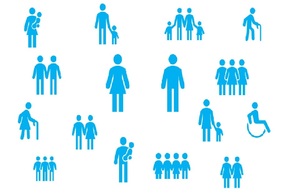Government announces £10 million for small businesses to kickstart tourism
- Government confirms £10 million new funding to boost tourism in England for renewal and recovery
- Funding will help small businesses in tourist destinations to access support of up to £5,000
- Government will also accelerate delivery of over £50 million for shovel-ready infrastructure projects over the coming months to help boost tourism
- Announcement follows £5 billion “New Deal” support announced by the Prime Minister this week
Communities that depend on tourism will receive a major boost from a new £10 million Kick-starting Tourism Package, the Minister for Regional Growth and Local Government Simon Clarke MP has today (3 July 2020) announced.
Speaking at the Local Government Association’s annual conference, Minister Clarke confirmed the new funding will be distributed to communities immediately to kick start tourism in time for the summer as part of the government’s drive to boost the recovery of the economy.
This is the latest package of support for economic recovery following the Prime Minister’s announcement of the “New Deal” earlier this week, which will bring forward £5 billion of capital investment projects, supporting jobs and economic recovery.
The £10 million Kick-starting Tourism Package, will give small businesses in tourist destinations grants of up to £5,000 to help them adapt their businesses following the coronavirus pandemic.
Businesses can use the funding to pay for specialist professional advice such as human resources, legal or financial expertise, to adopt new technology and online systems or to purchase new equipment. 100% of the money will come from government with no obligation for businesses to contribute financially.
Minister for Regional Growth and Local Government Simon Clarke MP said:
When the Prime Minister announced the New Deal, he made it clear that the government is determined to change the country for the better, uniting and levelling up our regions.
Kick-starting domestic tourism will be key to our economic recovery and that is why I am delighted to announce £10 million in new funding for small businesses in tourist destinations, bringing jobs, investment, and financial support to the communities who need it the most.
Many areas across the country have experienced a significant fall in tourist and visitor numbers in recent months. The initiative will help ensure that tourist hot-spots are firmly open for business this summer.
In his speech at the Local Government Association conference, the minister also paid tribute to local leaders and frontline workers for their “tireless efforts” in responding to and tackling coronavirus. He also confirmed the government would publish its devolution white paper this autumn.
Tourism Minister Nigel Huddleston said:
Our tourism sector is hugely important – creating jobs, supporting businesses and driving local economies in villages, towns and cities across the country. It is vital that we help the sector bounce back and give it the platform to recover when it reopens from tomorrow.
This fund will help many small businesses in tourism destinations and with the infrastructure investment brought forward will provide a further boost for jobs and growth.
Today’s funding from the European Regional Development Fund (ERDF) builds on the success of the government’s £32 million ERDF investments in tourism-boosting projects across the country that are providing benefits in local areas now. Live projects include £1 million to support coastal improvements in Cornwall and £4.2 million to help the Lake District meet its low carbon ambitions.
Minister Clarke has also confirmed that over £50 million ERDF funding for shovel-ready infrastructure projects will now be accelerated and distributed later in the summer and autumn. The funding is for projects already in development which will boost local economies and visitor numbers, create jobs and promote investment.
The Kick-Starting Tourism Package is supported by the England European Regional Development Fund as part of the European Structural and Investment Funds Growth Programme 2014 to 2020. The Ministry of Housing, Communities and Local Government is the Managing Authority for European Regional Development Fund. For more information visit https://www.gov.uk/european-growth-funding.
Funding will be allocated to each Local Growth Hubs based on how much of their employment base is linked to tourism and hospitality businesses. This means that coastal and rural areas – with a bigger proportion of their economy focused on tourism, hospitality and allied sectors, will get a larger share of the funds.
Growth hubs work across the country with local and national, public and private sector partners – such as Chambers of Commerce, FSB, universities, Enterprise Zones and banks, co-ordinating local business support and connecting businesses to the right help for their needs. They are locally driven, locally owned and at the heart of the government’s plan to ensure business support is simpler, more joined up and easier to access.
Activities supported through the £10 million grant can include:
-
one-to-many events providing guidance to respond to coronavirus
-
small grants (£1,000 – £5,000) to:
-
help businesses access specialist professional advice e.g. human resources, accountants, legal, financial, IT / digital
-
purchase minor equipment to adapt or adopt new technology in order to continue to deliver business activity or diversify
-
The government has published COVID-secure guidelines for people work in or run shops, branches, and stores.
The package follows the launch of the ‘Good to Go’ quality mark by Visit England last week.
Support for businesses impacted by COVID-19:
Today’s announcement forms part of a comprehensive package of support for businesses and workers during the economic emergency including:
- Earlier this week the Prime Minister announced £5 billion of capital investment projects, supporting jobs and the economic recovery, including £900 million for a range of ‘shovel ready’ local growth projects in England over the course of this year and next, as well as £96 million to accelerate investment in town centres and high streets through the Towns Fund this year. This will provide all 101 towns selected for town deals with £500,000 to £1 million to spend on projects such as improvements to parks, high streets, and transport.
- The Coronavirus Job Retention Scheme where small and large employers are eligible to apply for a government grant of 80% of workers’ salaries up to £2,500 a month, backdated to 1 March. The scheme will continue until end of October 2020.
- £330 billion worth of government backed and guaranteed loans to support businesses including a new Bounce Back Loans scheme, which will provide loans of up to £50,000 available to the smallest businesses affected by the coronavirus pandemic.
- Businesses in the retail, hospitality and leisure sectors in England will not have to pay business rates for the 2020 to 2021 tax year.
- A deferral of the next quarter of VAT payments for firms, until the end of June 2020 – representing a £30 billion injection into the economy.
- A £12.3 billion package for local authorities to deliver grants of up to £25,000 to eligible businesses in the retail, hospitality and leisure sectors.
- New temporary measures to safeguard the UK high street against aggressive debt recovery actions during the coronavirus pandemic.
- The High Streets Task Force has been offering advice, online resources and support to place leaders to take action now and build the capacity for recovery and longer-term transformation.
- The £50 million Reopening High Streets Safely Fund will help councils in England introduce a range of safety measures in a move to kick-start local economies, get people back to work and customers back to the shops.
As the country to the next stage of the recovery from COVID-19, the government is returning to its central mission to level up the nation through programmes like the £3.6 billion Towns Fund and Future High Streets Fund.
With 100 places across England working on Towns Deals of up to £25 million each, the Fund will play an important part in the kick-starting of our economic recovery and levelling up the regions.

